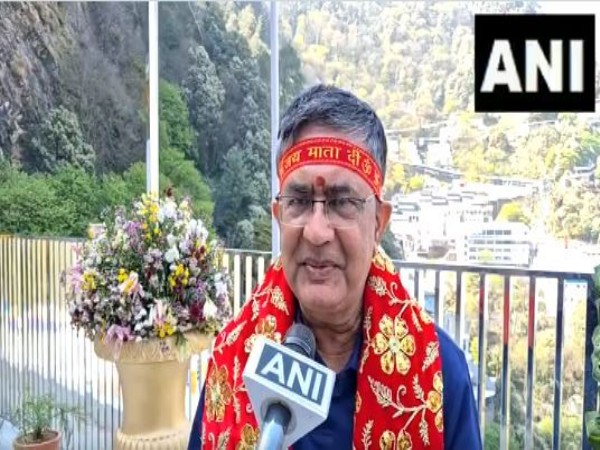"Climate change is no longer a problem we are leaving for our future generations," says CAG
Mar 20, 2024

New Delhi [India], March 20 : A substantial financial investment of more than USD 10 trillion will be required annually by 2050 to address climate change effectively, Comptroller and Auditor General of India (CAG), Girish Chandra Murmu said on Tuesday, while cautioning against exacerbated global warming and socio-economic consequences from climate-related disasters.
The CAG emphasized the pivotal role of climate financing in driving nations, communities, and businesses towards a more resilient and sustainable future.
Speaking at a one-day seminar on climate financing held on Wednesday in Delhi, Murmu underscored the "urgency for robust climate finance mechanisms to address the escalating challenges posed by climate change".
Murmu highlighted that climate change is no longer a distant concern but a pressing reality that demands immediate action. He stressed that as climate change intensifies, "so does the urgency for financing adaptation, mitigation, and resilience-building efforts worldwide".
As climate change intensifies, so does the urgency for robust climate finance mechanisms to fund adaptation, mitigation, and resilience-building efforts worldwide.
"WHO predicts that climate change is expected to cause approximately 250000 additional human deaths per year, between 2030 and 2050. This grim forecast warrants a comprehensive solution encompassing both climate mitigation and climate adaptation measures. Climate mitigation involves reducing or preventing greenhouse gas emissions,while adaptation entails strategies to adjust to the impacts of climate change. Both require targeted climate finance, ensuring a balanced and holistic approach to combatting climate challenges," the statement of CAG said.
He emphasized the need for timely investments in low-carbon, climate-resilient pathways to mitigate the socio-economic consequences of climate-related disasters.
The CAG said, "Climate change is no longer a problem we are leaving for our future generations; but a phenomenon we are increasingly experiencing and have to contend with. As climate change intensifies, so does the urgency for robust climate finance mechanisms to fund adaptation, mitigation, and resilience-building efforts worldwide."
The CAG further pointed out that annual climate finance needs are estimated to increase substantially, exceeding USD 10 trillion annually by 2050.
However, the current level of climate finance falls significantly short of these requirements, posing a grave risk of exacerbating global temperatures and intensifying the socio-economic repercussions of climate-related disasters.
CAG said, "Annual climate finance needs are estimated to increase substantially, reaching well beyond USD 10 trillion annually by 2050. Failing to meet these financial demands will exacerbate the rise in global temperatures, simultaneously intensifying socio-economic consequences of climate-related disasters."
He added, "Unfortunately, despite the stark cost-benefit analysis, climate finance remains significantly inadequate."
Murmu described the seminar as a collaborative effort aimed at unraveling the complexities of climate finance and assessing its current state through an audit perspective.
The conference provided a platform for dialogue on climate financing, facilitating the sharing of knowledge and experiences on various aspects of the theme by experts and stakeholders.
The seminar witnessed contributions from esteemed speakers, including Chandini Raina, Economic Advisor, Ministry of Finance; Saurav Sinha, Executive Director, RBI;. Divyank Singh, CEO, Smart City Indore and Additional Nagar Nigam Commissioner Indore; Dr Satya Priya Rath, Director (Budget), Finance Department, Government of Odisha; and S. Alok, Director General of Audit, Defence Service.
Topics discussed ranged from an overview of climate finance and audit perspectives to key components of India's climate finance strategy and addressing financial risks from climate change.




















